How AI Search Can Save Your Team Hours of Work Every Week


AI search can help your team save hours of work every week by quickly finding the information you need. Normally, searching through emails, documents, or different systems can be slow and frustrating. Teams often spend too much time looking for data, which affects their productivity.
With AI search, things get much easier. It uses tools like advanced AI techniques to understand your questions better and give you faster, more accurate results. In this post, we’ll look at how AI search can speed up your team’s work, reduce wasted time, and make everyone more efficient.

Traditional search methods, such as manually browsing through emails, documents, and internal systems, are not just outdated—they’re inefficient. Here are some of the key problems that teams face:

AI search makes finding information faster and smarter by understanding the context of queries and improving over time. Here’s how it works and why it’s effective.
AI search engines use natural language processing (NLP) to understand the meaning behind your words. Instead of just scanning for keywords, NLP enables the system to grasp the intent of your entire query.
This helps your team find accurate answers quickly without wasting time on irrelevant results.
Semantic search helps AI understand the relationships between different words and concepts, which ensures you get more relevant results even if the exact search terms aren’t present in the document.
By focusing on meaning rather than specific words, semantic search provides a much deeper level of accuracy than normal search.
With generative search, AI can actually create answers for you by summarizing data from multiple sources.
Generative search is especially useful when your team needs a quick overview or a direct solution.
AI search engines get better over time using machine learning (ML) algorithms. As users interact with the system, it learns from these interactions to improve future searches.
Techniques like HILT (Hierarchical Interactive Learning Techniques) and Reinforcement Learning from Human Feedback (RLHF) help the AI become smarter, making search results more relevant and accurate as it learns what’s most useful for your team.
Another advantage of AI search is personalization. The you can customised the AI according your preferences and you want it provide results to your team or customers.
This makes the search experience faster and more intuitive, helping each team member find what they need in less time.
AI search can handle multimodal search, meaning it can answer from different types of data— text, images, videos, and more—all at once.
This comprehensive search capability ensures that all relevant content, regardless of format, is easily accessible.
AI search has completely transformed how businesses operate, making it easier to find information quickly. A great example comes from a large e-commerce company that faced some serious challenges in its customer support team.
In this e-commerce company, developers struggled with accessing the vast amount of internal documentation necessary for their projects. The documentation was often scattered across various systems, including wikis, internal databases, and project management tools. This made it difficult for developers to quickly find the information they needed, causing delays in project timelines and impacting overall productivity.
To tackle this issue, the company implemented Generative Search using YourGPT. They introduced a private search widget specifically designed for internal documentation. This allowed developers to locate relevant technical documents, code snippets, and design guidelines swiftly, streamlining their workflow.
AI search tools offer significant advantages to various teams within an organization. Here’s how specific teams can leverage AI search for enhanced productivity and efficiency:
AI search enhances how teams find information. Unlike traditional methods, AI search understand the context behind queries. This leads to accurate results, saving time and reducing the frustration of irrelevant data.
Using AI search improves the quality of insights. Teams can rely on the information they access, ensuring better decision-making.
Adopting AI search improves processes and empowers teams to respond quickly to challenges.
Join thousands of businesses transforming customer interactions with YourGPT AI
No credit card required • 7 days access • Limited time offer
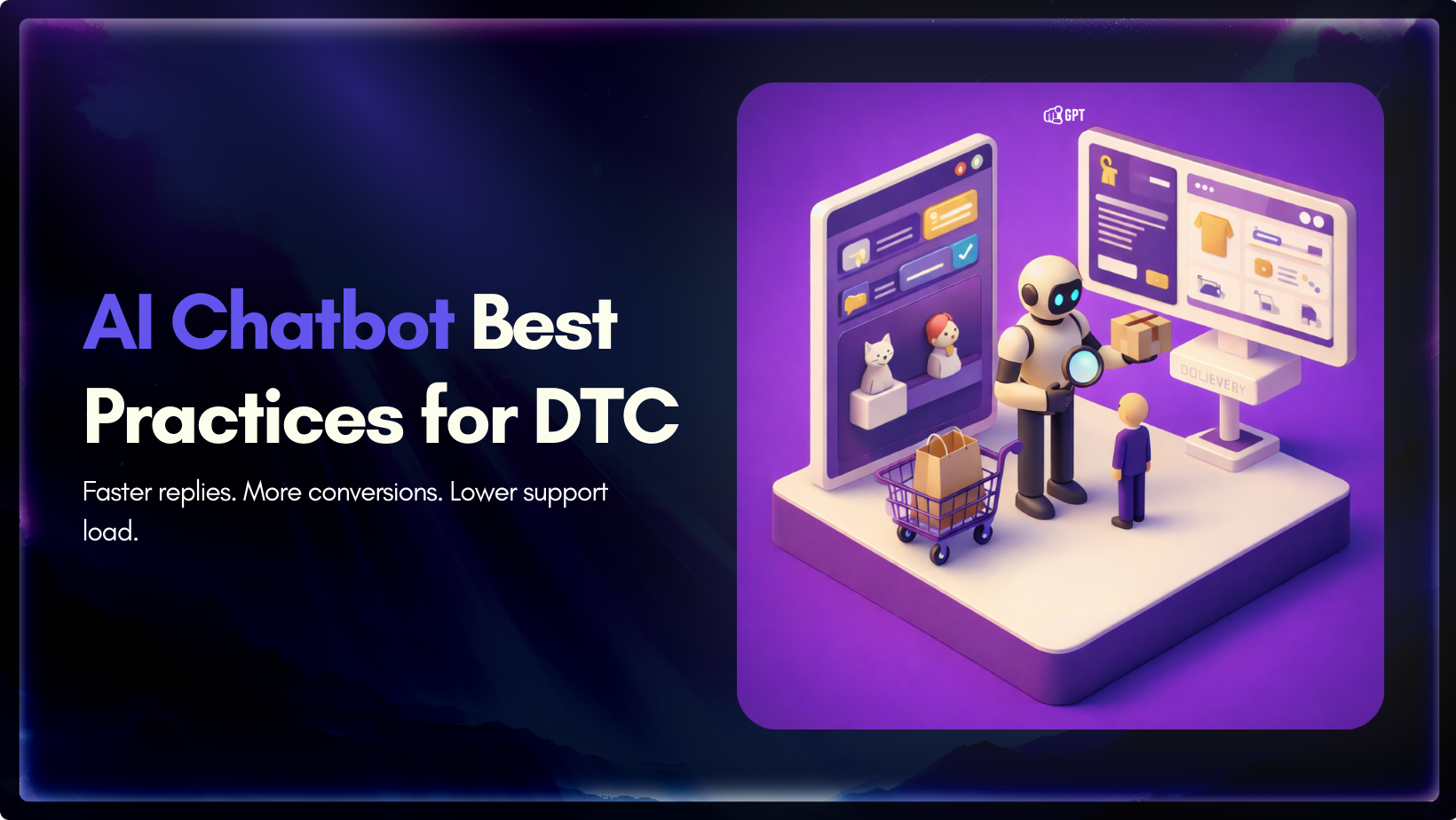
Nearly 70% of shoppers who add something to their cart leave without buying (glued). Some were never serious. But a lot of them had a question, needed a fast answer, and moved on when one did not come. That is the actual problem AI chatbots solve in DTC, when built correctly. A specific shopper, a […]

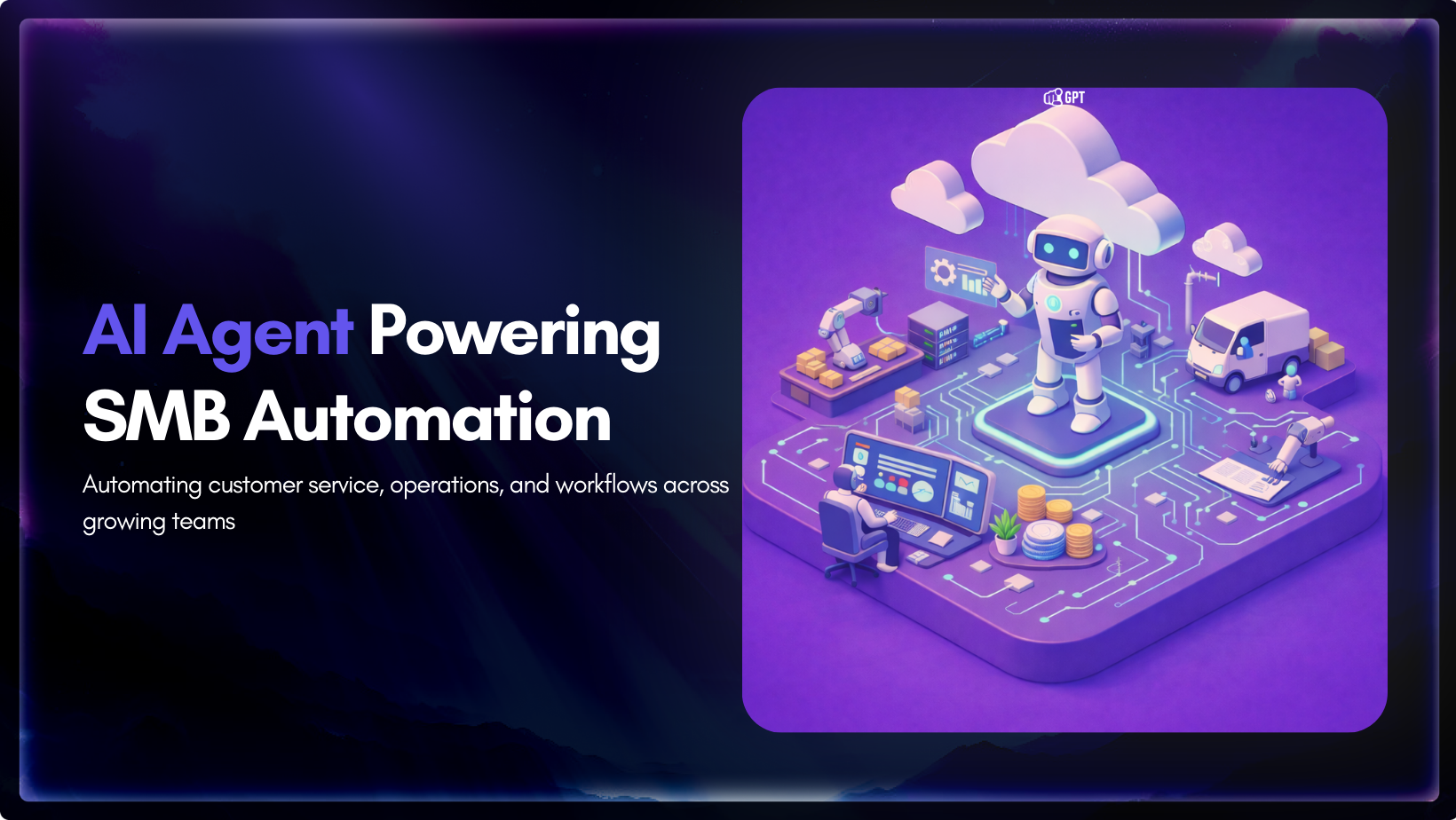
Small and medium businesses are facing a structural shift. Customers expect instant responses. Work happens across dozens of tools. Teams remain lean. Costs keep rising. Yet service quality is expected to match large enterprises. For years, businesses depended on chatbots, helpdesks, and manual workflows. These systems offered limited relief, handling basic questions and ticket routing […]

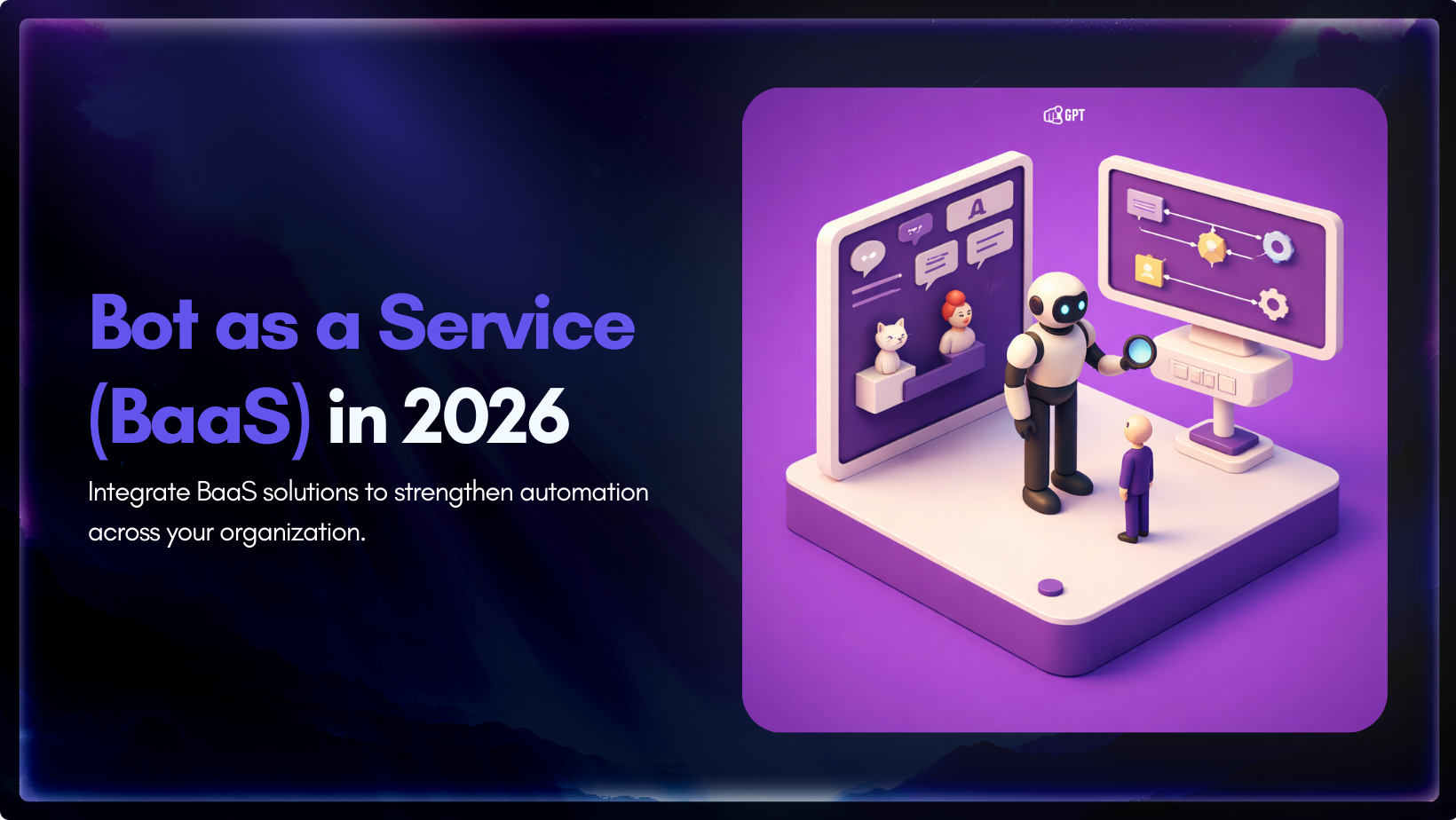
Automation defines how modern enterprises execute, respond, and grow. Customer conversations are handled by AI. Transactions move through automated workflows. Approvals route across departments without manual follow-ups. In high-performing organizations, intelligent systems are embedded directly into revenue operations, service delivery, finance, and internal support. Investment trends confirm this shift. The global conversational AI market surpassed […]

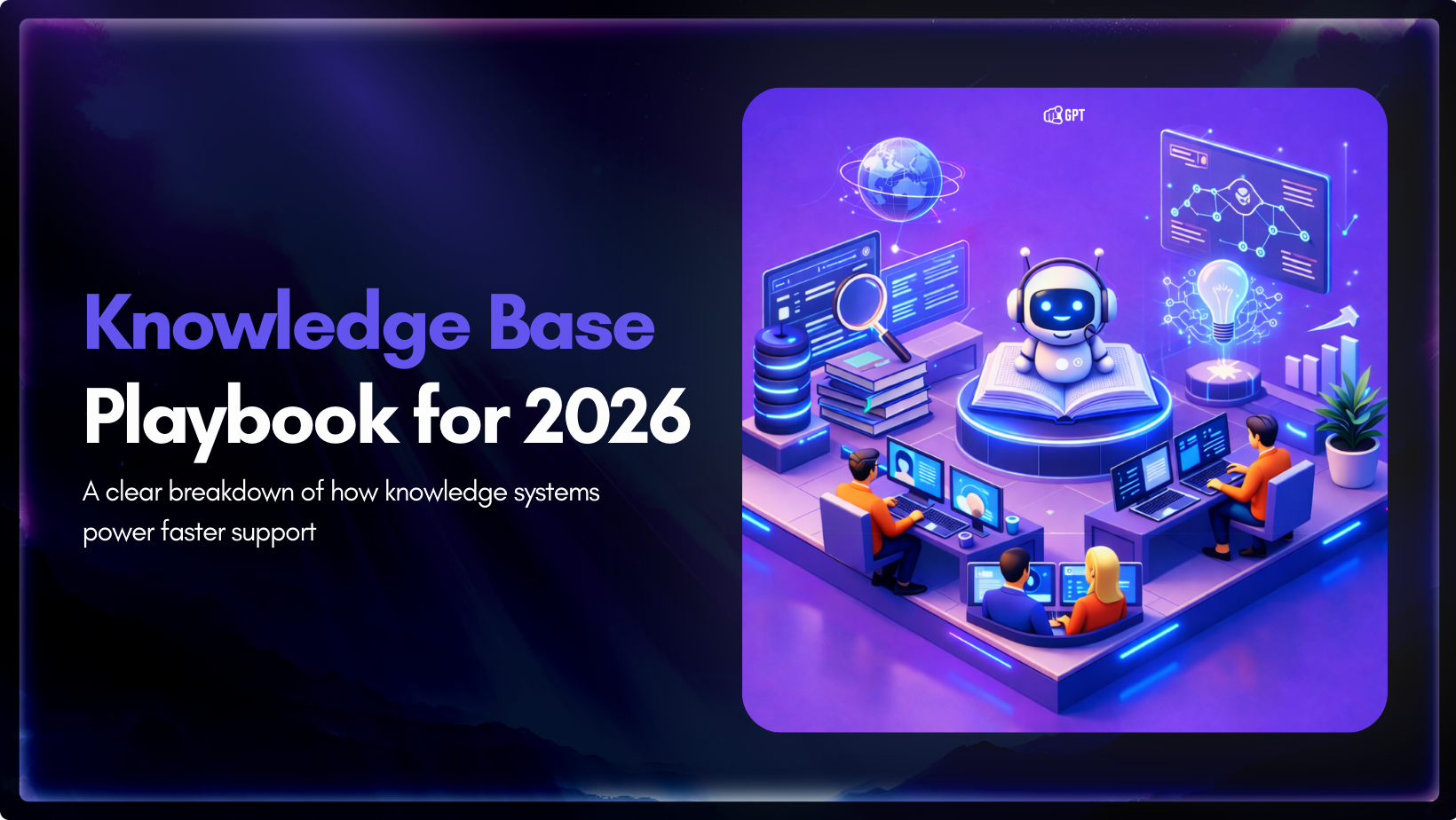
Access to clear, accurate information now sits at the center of customer experience and internal operations. People search first when setting up products, reviewing policies, or resolving issues, making structured knowledge essential for fast, consistent answers. A knowledge base organizes repeatable information such as guides, workflows, documentation, and policies into a searchable system that supports […]

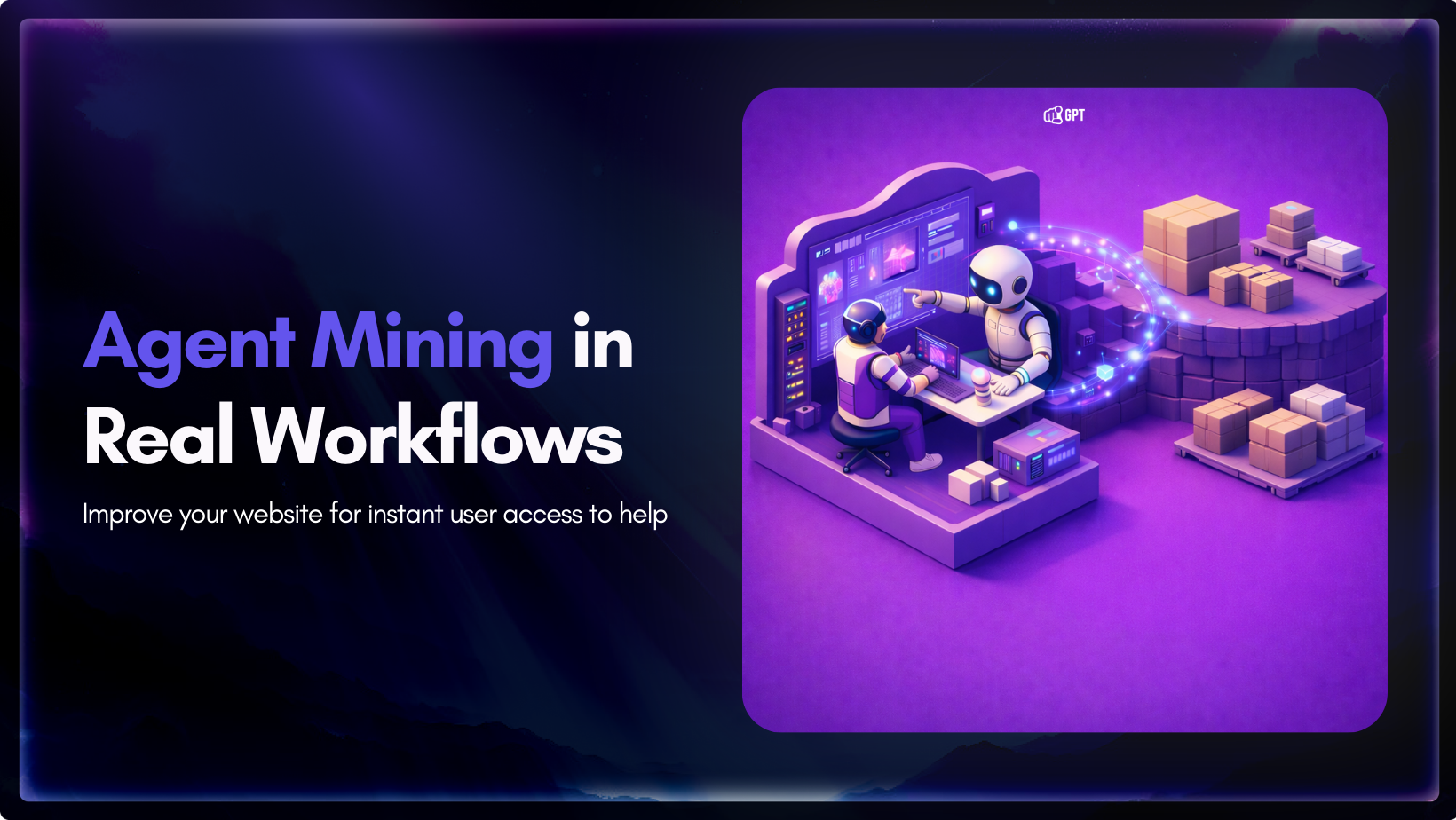
TL;DR Agent mining shifts AI from answering questions to executing real work across systems through controlled, repeatable workflows with verification. By automating repetitive operations with guardrails and observability, agents reduce friction, improve consistency, and let humans focus on decisions and edge cases. For a decade, AI was mostly framed as something that answers. It explains, […]

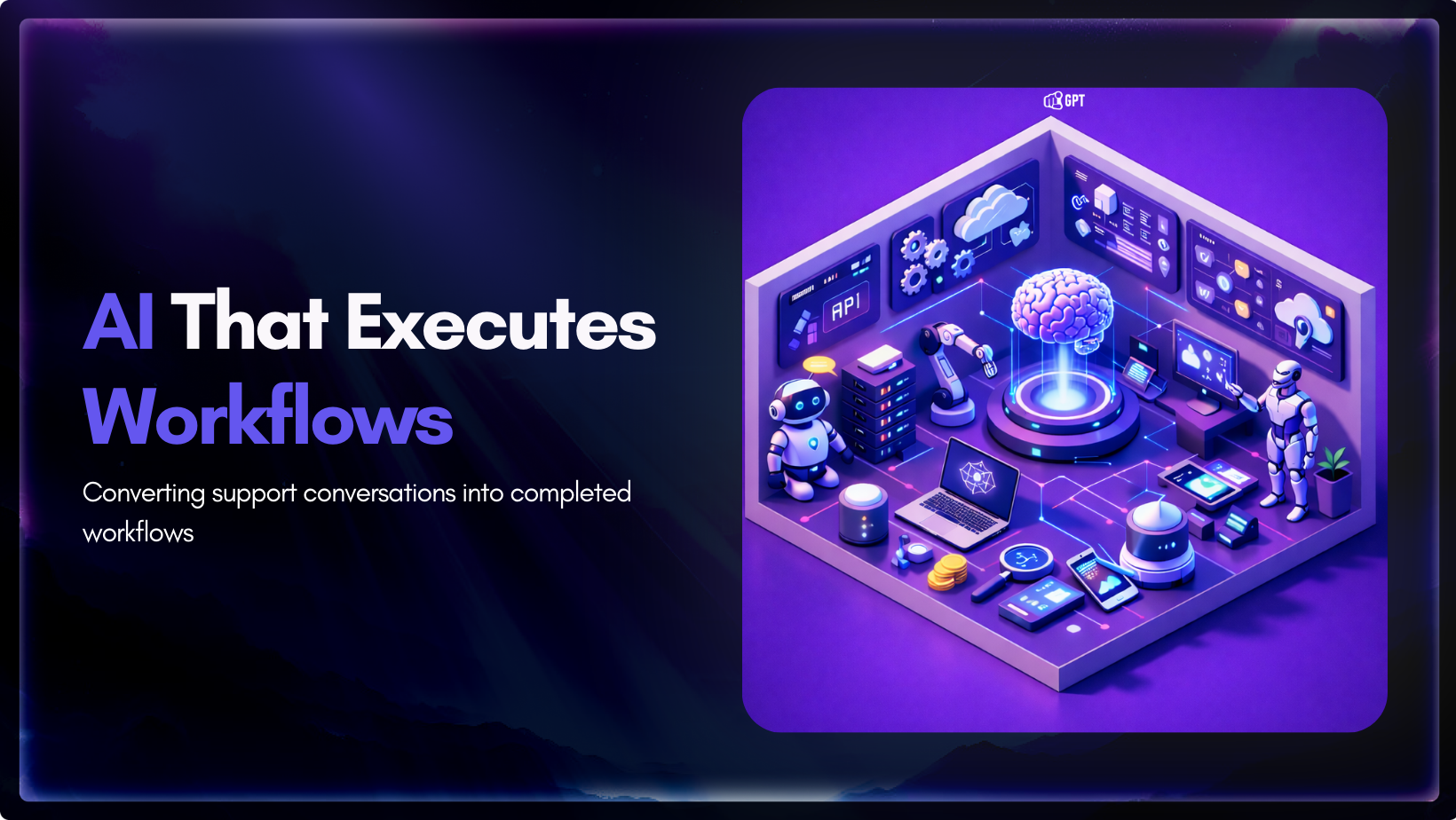
Say “AI” and most people still think ChatGPT. A chat interface where you type a question and get an answer back. Fast, helpful, sometimes impressive. Three years after ChatGPT went viral, surveys show that’s still how most people think about AI. For many, ChatGPT isn’t just an example of AI. It is AI. The entire […]
